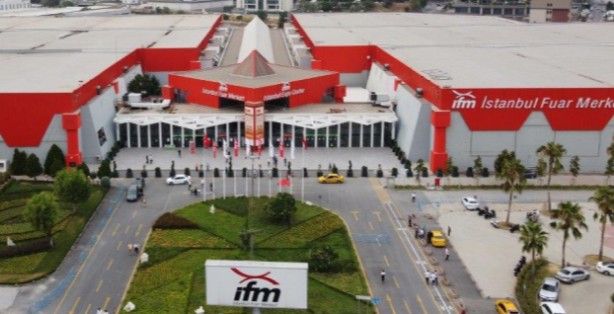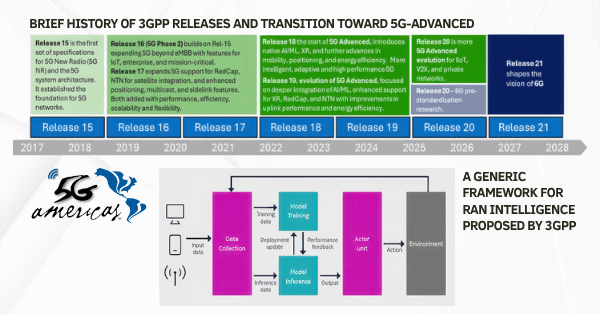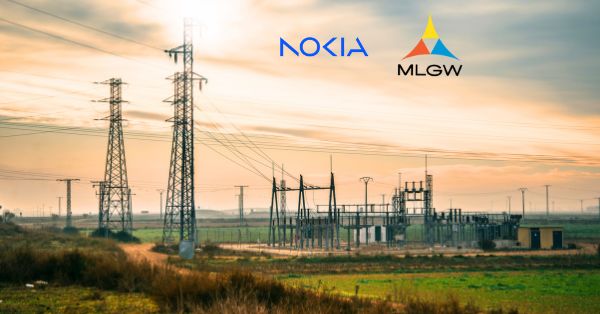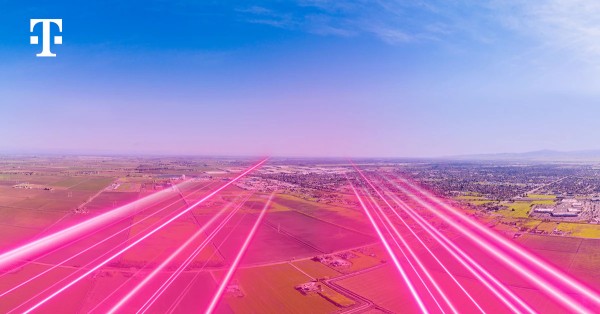In 2025, the mobile industry is set to pass a major milestone – more than one billion devices will be connected using specialist Internet of Things (IoT) technologies (NB-IoT or LTE-M). “In 2024, low power wide area networks matured, and you started to see widespread adoption, particularly in Europe, on smart metres for instance,” explains Shane Rooney, Senior Technical Director at the GSMA. At MWC Barcelona 2025, he expects a big focus on “multi-bearer coverage” – the integration of ambient or passive IoT, private networks in factories and campuses, public 5G networks and satellite connectivity.
Another key development in the IoT market is the finalisation of a dedicated eSIM specification, which will help lower the cost of employing embedded SIM cards in IoT devices. “We are going to see the commercialisation of that in 2025,” says Gloria Trujillo, Technical Director at the GSMA. The IoT eSIM specification will help the industry overcome fragmentation, meaning the cost of deployment can be lower compared to proprietary solutions. In the second half of 2025, the number of eSIM connections is set to grow significantly, according to Trujillo.
“ At MWC Barcelona 2025, [we] expect a big focus on “multi-bearer coverage” – the integration of ambient or passive IoT, private networks in factories and campuses, public 5G networks and satellite connectivity. – Shane Rooney, Senior Technical Director at the GSMA
At the same time, awareness of mobile identity services has increased markedly, says Helene Vigue, Identity and Data Director at the GSMA. In 2024, “it really exploded on the stage at MWC (Barcelona 2024) with the GSMA Open Gateway initiative,” she recalls. “The spotlight from the Gateway has really helped scale the supply of network APIs. So, the deployments are happening at a quicker pace than before.” At MWC Barcelona 2025, Vigue is expecting interest in the “premise of the mobile number as a root of trust,” enabling mobile operators to provide enterprises with more valuable and sophisticated information. This year will also see mobile operators support the further development of the European digital identity wallets envisioned by the EU’s revised eIDAS Regulation, which will come into force in 2026.
Tailoring 5G to the needs of enterprises
In 2024, the mobile industry raised its game in the enterprise market, says Richard Cockle, Head of GSMA Foundry and Connected Industries. “There’s been more of a realisation around the unique nature of the requirement to be successful in the enterprise space,” he says, noting that more mobile operators are “delayering their businesses” to create companies that are focused on certain levels of technology. At MWC Barcelona 2025, he is expecting to see telco-enterprise partnerships around cloud technologies, artificial intelligence (AI) and APIs, together with progress on non-terrestrial networks (NTN) and network slicing services for enterprises.
Another key enabler for enterprises is the rollout of standalone 5G networks, which have a cloud-native core, making them more flexible and versatile. Henry Calvert, Head of Networks at the GSMA, is helping operators develop the business case. The release of a new GSMA study will enable “operators to get more confident in launching 5G standalone that bring service-based architectures to bear,” he predicts, as the GSMA Open Gateway makes it easier for operators to expose (and charge for) their network capabilities.
“ Operators [will become] more confident in launching 5G standalone that bring service-based architectures to bear – Henry Calvert, Head of Networks at the GSMA
At the same time, 5G Advanced technologies are beginning to gain traction. Barbara Pareglio, Technical Director and Capabilities Director at the GSMA, notes that 2024 saw some early deployments of 5G RedCap (Reduced Capability), a low-cost form of 5G. In 2025, she expects to see initial deployments of other aspects of 5G Advanced, such as enhanced uplinks and the integration of NTN. In China, mobile operators are adapting 5G networks for sensing use cases, as well as connectivity. During 2025, Release 18 of the 3GPP standards will be finalised, paving the way for the first compatible equipment to be launched towards the end of the year.
GSMA Experts highlight new tech on the horizon
As the 3GPP standards evolve, the GSMA Foundry is supporting the integration of NTN with terrestrial networks, says Richard Cockle. Through its partnership with the European Space Agency (ESA), the Foundry has been able to unlock funding opportunities for innovative companies in this space, he explains. The Foundry is also helping the mobile industry harness AI. For example, its partnership with Barcelona Supercomputing Center has helped mobile operator VEON expand its large language model for Kazakhstan from 2 billion parameters to 70 billion parameters. In 2025, Cockle says the Foundry will continue to develop its existing partnerships, as well as exploring new areas, such as the development of private 5G networks and quantum technologies.
In 2025 (the International Year of Quantum Science and Technology), Yolanda Sanz, Technical Director at the GSMA, expects the telecoms industry to further explore how quantum technologies such as quantum sensors and computers can be used in networks to improve the range and reliability of telco infrastructure. She also anticipates progress on the integration of quantum key encryption into telecoms infrastructure, which will further boost confidence in the privacy and security of communications.
Post quantum cryptography is advancing in parallel. In 2024, the National Institute of Standards and Technology (NIST) in the US released the first three post quantum algorithms. “This is a big milestone to protect the telco infrastructures,” Sanz notes. “Following this release, GSMA is already working with the industry to update the telco specifications to make sure that our communication will remain secure in the post quantum era and against harvest now, and decrypt later attacks.”
“ At MWC Barcelona, security experts will explore the growing use of AI both to attack and defend mobile networks. – Samantha Kight, Head of Industry Security at the GSMA
Meanwhile, the GSMA Telecommunication Information Sharing and Analysis Center (T-ISAC) “has seen significant growth,” says Samantha Kight, Head of Industry Security at the GSMA. At MWC Barcelona, security experts will explore the growing use of AI both to attack and defend mobile networks, Kight adds. During 2025, the GSMA will be convening the industry to double down on initiatives and capabilities to reduce fraud linked to SMS and SS7 service misuse, she adds. The GSMA Open Gateway will play an increasingly important role in these initiatives.
Don’t miss the opportunity to dive deeper into these topics and more at MWC25 Barcelona. To find out more about how mobile tech will evolve in 2025, register for the upcoming GSMA Technology and Foundry summits on the MWC Barcelona 2025 website.






























